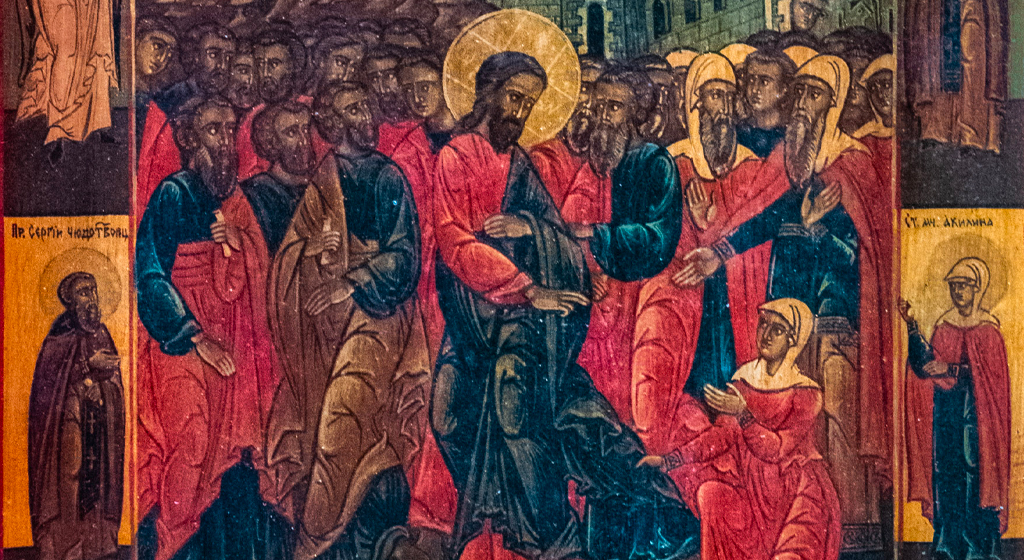Memory of the Poor
Memorial of Saint John Chrysostom ("golden mouth"), bishop and doctor of the Church (+407). The most common liturgy of the Byzantine Church takes its name from him.
Reading of the Word of God
Alleluia, alleluia, alleluia
This is the Gospel of the poor,
liberation for the imprisoned,
sight for the blind,
freedom for the oppressed.
Alleluia, alleluia, alleluia
Luke 7,1-10
When he had come to the end of all he wanted the people to hear, he went into Capernaum. A centurion there had a servant, a favourite of his, who was sick and near death. Having heard about Jesus he sent some Jewish elders to him to ask him to come and heal his servant. When they came to Jesus they pleaded earnestly with him saying, 'He deserves this of you, because he is well disposed towards our people; he built us our synagogue himself.' So Jesus went with them, and was not very far from the house when the centurion sent word to him by some friends to say to him, 'Sir, do not put yourself to any trouble because I am not worthy to have you under my roof; and that is why I did not presume to come to you myself; let my boy be cured by your giving the word. For I am under authority myself, and have soldiers under me; and I say to one man, "Go," and he goes; to another, "Come here," and he comes; to my servant, "Do this," and he does it.' When Jesus heard these words he was astonished at him and, turning round, said to the crowd following him, 'I tell you, not even in Israel have I found faith as great as this.' And when the messengers got back to the house they found the servant in perfect health.
Alleluia, alleluia, alleluia
The Son of Man came to serve,
whoever wants to be great
should become servant of all.
Alleluia, alleluia, alleluia
The spiritual and human depth of the centurion is striking. The elders who approach Jesus and present his request, praise him. They tell Jesus that he is a man who "loves our people" (the verb used is "agapao", a verb used by the authors of the New Testament to indicate the love for God). They add that he has been so generous to build the synagogue of the city at his own expenses. His love for his servant (he treats him like a son) is exemplary. Jesus is touched by such deep love. While Jesus is drawing near to his house, the centurion sends some other friends to tell him to not be bothered any further. He is convinced that a word from Jesus is sufficient to heal his servant. Furthermore he feels unworthy of receiving Jesus at his home: a feeling of exemplary humility for all of us. His faith in Jesus makes the centurion say those words that all Christians pronounce still today during the Eucharistic liturgy: "O Lord, I am not worthy to have you under my roof; but only speak the word and let my servant be healed." Jesus presents this centurion as a lofty image of the believer: "I tell you, not even in Israel have I found such faith." Jesus, who tells us that even a faith the size of a mustard seed is sufficient, speaks for this pagan of "such [great] faith." For the centurion one word of Jesus is enough to heal. Jesus is the "Word" of the Father: Jesus is the one who heals, the one who saves. The words that come from Jesus' mouth have the power of God and of his love without limits. Blessed are we if we trust at least a little in the Word of God that never fails us.
